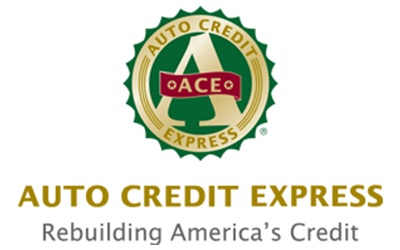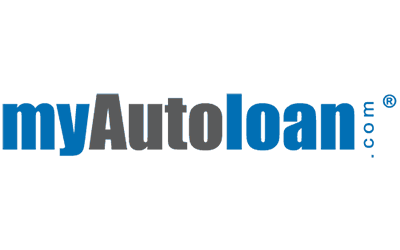Getting a car loan with bad credit and no cosigner isn’t easy—but it’s not impossible. While traditional lenders may turn you down, there are still ways to get approved if you know where to look and how to prepare.

You just need to approach it differently. The good news is, with the right lender and a few smart moves, you can finance a car on your own—no cosigner required.
5 Ways to Qualify for a Car Loan With Bad Credit and No Cosigner
You don’t need perfect credit or a cosigner to get a car loan—but you do need a smart plan. The steps below can increase your chances of approval and help you avoid lenders or dealerships that might try to take advantage of your situation.
1. Work With Lenders That Approve Bad Credit Applicants
Some lenders focus on helping people with bad credit or no credit history. Many of them don’t require a cosigner, and some approve applicants with credit scores as low as 400. These lenders look at your whole financial picture, not just your credit score.
Here are four lenders worth checking out:
1. Auto Credit Express
- Minimum credit score: 400
- Loan term: Up to 72 months
- Accepts applicants with bad or no credit and even past bankruptcy
- A+ BBB rating
2. CarsDirect
- Minimum credit score: none
- Loan term: Up to 72 months
- Connects you with dealers within 24 hours.
- A+ BBB rating
3. car.Loan
- Minimum credit score: none
- Loan term: Up to 72 months
- All credit accepted. Lease, buy, or rent.
- Same-day approval
4. myAutoLoan
- Minimum credit score: 575
- Loan term: 24 to 84 months
- A+ BBB rating
These lenders are built for people who’ve been turned down by banks or dealerships. Just make sure you compare rates and terms carefully before signing anything.
2. Make a Larger Down Payment
Putting more money down up front shows lenders you’re serious and helps reduce their risk. A larger down payment means you’ll need to borrow less, which makes it easier to get approved—especially with a low credit score.
Here’s how to come up with extra cash:
- Pick up a side gig: Food delivery, rideshare, or freelancing can bring in quick money.
- Use your tax refund: If you’re expecting one, put it straight toward the down payment.
- Sell what you don’t need: Old electronics, fitness gear, or unused tools can add up.
A down payment of at least 10% is a good target, but 20% or more can help you lock in a better interest rate and more manageable monthly payments.
See also: How Much Should I Put Down on a Car?
3. Choose a Cheaper, Reliable Vehicle
The less you borrow, the better your odds of getting approved. Lenders are more willing to approve smaller loans, especially when there’s no cosigner involved.
Used cars are usually a better choice here:
- Lower purchase price: Easier to qualify and less interest overall.
- Less depreciation: New cars lose value fast, which can leave you underwater on the loan.
If you’re working with a dealer, avoid “buy here, pay here” lots unless it’s truly your only option. These places often charge extremely high interest rates and have strict payment terms that can trap you in debt. If you do go this route, read every detail of the contract.
4. Show Strong, Verifiable Income
Even if your credit score is low, strong income can help offset the risk in a lender’s eyes. They want to see that you can afford the payments.
Bring these documents when applying:
- Recent pay stubs
- Bank statements
- Tax returns (especially if self-employed)
If you work freelance or gig jobs, showing consistent deposits over several months can help prove income stability.
5. Build or Rebuild Your Credit (If You Can Wait)
If you don’t need a car right away, spend a few months improving your credit score. Even a small increase can lead to better loan terms and lower interest rates.
Here’s how to get started:
- Get a secured credit card: Use it responsibly and pay on time each month.
- Try a credit-builder loan: Offered by many credit unions and online lenders.
- Use tools like Experian Boost: Report utility and phone payments to help your credit file.
After just 3–6 months of consistent payments and low balances, you might qualify for better financing offers—even without a cosigner.
Other Financing Options to Explore
If you’re still having trouble getting approved, don’t give up. There are a few alternative ways to finance a car without a cosigner, even if your credit score is low. These options aren’t always advertised, but they can make a real difference—especially when traditional lenders say no.
Try a Credit Union
Credit unions are often more flexible than big banks when it comes to approving auto loans. They tend to look at your full financial picture, not just your credit score, which can help if your income is solid but your credit is shaky.
You may be able to join a credit union based on where you live, where you work, or even through a family member. Once you’re a member, you can apply for a car loan with terms that are often more favorable than what you’ll find at a dealership.
Look Into Peer-to-Peer Lending
Peer-to-peer lending platforms connect borrowers directly with individual investors instead of banks or auto lenders. These platforms often have fewer credit restrictions and can be a good fit for people with fair or bad credit.
Popular peer-to-peer lenders include LendingClub, Upstart, and Prosper. Approval isn’t guaranteed, but if you have steady income and a reasonable debt load, you might get an offer.
Research Local or Nonprofit Assistance
Some nonprofits, churches, and community groups offer low-interest car loans—or even grants—for people who need reliable transportation. These programs are often geared toward single parents, low-income workers, or those starting over after financial hardship.
Check with local government offices, job placement centers, or the United Way to see what might be available in your area. These programs often have income limits, but they can be a huge help if you qualify.
Consider Dealer Financing as a Last Resort
Some dealerships offer in-house financing, especially for customers with poor credit. While it can be tempting if you’ve been turned down elsewhere, this option often comes with high interest rates, tight payment terms, and expensive add-ons.
Be especially cautious with “buy here, pay here” dealerships. They may not check credit, but they often charge much more than the car is worth and include hidden fees in the loan. If you do go this route, read the contract carefully and plan to refinance with a better lender once your credit improves.
What to Watch Out for With Bad Credit Car Loans
Not every loan offer is a good deal—especially when you have bad credit. Some lenders and dealerships prey on desperate buyers by offering high-risk terms that cost you way more than the car is worth. Here are the biggest red flags to look out for before you sign anything.
- High interest rates – Rates can be steep with bad credit, but they shouldn’t be outrageous. Compare offers and check what’s typical for your credit score so you know if a lender is taking advantage of you.
- Long loan terms – Spreading your payments out over 72 or 84 months might lower your monthly cost, but you’ll pay more in interest over time—and you’ll stay upside down on the loan longer.
- Prepayment penalties – Some lenders charge a fee if you try to pay off your loan early. Make sure to ask about this up front, especially if you plan to refinance later.
- Mandatory add-ons – You don’t need gap insurance, service contracts, or protection packages just to qualify for financing. Say no to extras you didn’t ask for.
- “Yo-yo” financing scams – Some dealerships let you drive off before the financing is final, then call days later saying the loan fell through—forcing you into worse terms. Always wait until everything is fully approved and in writing.
Final Thoughts
Getting a car loan with bad credit and no cosigner isn’t easy, but it’s completely doable if you take the right steps. From finding the right lender to making a strong down payment and choosing an affordable car, small moves can make a big impact.
Focus on what you can control—your income, your budget, and your preparation. If you stay realistic and avoid the traps that come with high-risk loans, you can get approved and keep your finances on track.
Frequently Asked Questions
Can I trade in my current car if I still owe money on it?
Yes, you can trade in a car with an existing loan, but it depends on whether you have positive or negative equity. If the car is worth more than what you owe, the difference can go toward your next car. If you owe more than it’s worth, that balance may be rolled into your new loan—just be careful, as this can make your new loan more expensive.
Will buying a car with bad credit help improve my credit score?
It can, as long as the lender reports to the credit bureaus, and you make all your payments on time. Over time, a well-managed auto loan can build your credit and improve your credit score. Just avoid missing payments, as they’ll hurt your score even more.
Can I buy a car with a credit card if I can’t get approved for a loan?
Sometimes, but it’s rarely a good idea. Most dealerships have limits on how much you can charge, and credit cards typically come with higher interest rates than auto loans. You’ll also lose the structured repayment plan of a car loan, which can make it harder to stay on track.
Are there buy now, pay later car financing options?
Some dealerships and online platforms offer deferred payment options or “buy now, pay later” promotions. These deals might let you delay your first payment for a few months, but the interest usually starts right away. Always read the fine print to see what it’s really costing you.
What documents do I need to apply for a bad credit car loan?
You’ll usually need proof of income (pay stubs, bank statements), proof of identity (driver’s license), proof of residence (utility bill or lease), and possibly proof of insurance. Some lenders may also ask for references or verification of employment.








